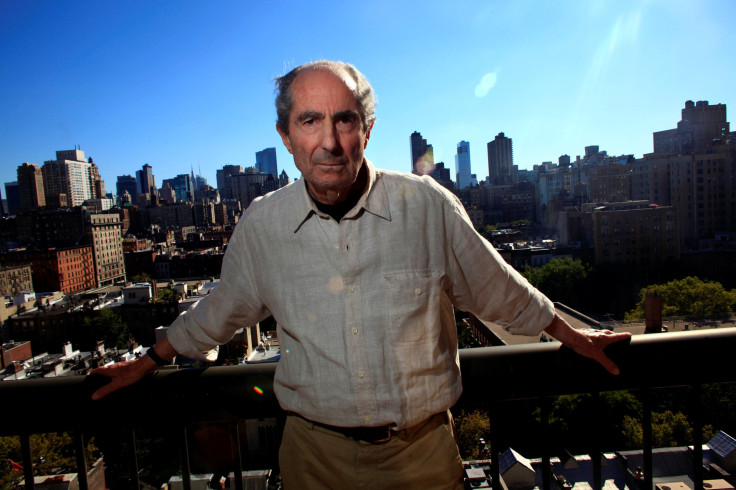Philip Roth Quotes: Trump A ‘Boastful Baffoon’ And Other Memorable Writings
Pulitzer prize-winning Jewish author Philip Roth died Tuesday of congestive heart failure at the age of 85.
Roth has written an array of highly acclaimed books in his lifetime till 2012, after which he announced his retirement. Among his literary works, perhaps the most well-known are “American Pastoral,” published in 1997 — for which he received the Pulitzer Prize — and “The Plot Against America,” released in 2004, which followed a fictional scenario where Charles Lindbergh, a Nazi sympathizer, won the 1940 presidential election instead of the then POTUS Franklin Roosevelt.
After the 2016 election, many opined Roth’s 2004 novel foreshadowed the conditions America would go through under Trump’s presidency, including the rise of xenophobia. In a rare interview with the New York Times, published in January 2018, Roth had some scathing remarks about the current POTUS.
“No one I know of has foreseen an America like the one we live in today,” he said. “No one could have imagined that the 21st-century catastrophe to befall the USA, the most debasing of disasters, would appear not, say, in the terrifying guise of an Orwellian Big Brother but in the ominously ridiculous commedia dell’arte figure of the boastful buffoon.”
When asked whether the central character of his fictional novel — Lindbergh — was exactly like Trump, Roth disagreed. He said the main plotline of his novel follows Lindbergh striking a deal with Nazi leader Adolf Hitler to keep America out of Europe before World War II, and added the former had a number of redeeming qualities that Trump lacks.

“It’s the difference in stature between a President Lindbergh and a President Trump. Charles Lindbergh, in life as in my novel, may have been a genuine racist and an anti-Semite and a white supremacist sympathetic to Fascism, but he was also — because of the extraordinary feat of his solo trans-Atlantic flight at the age of 25 — an authentic American hero 13 years before I have him winning the presidency. Lindbergh, historically, was the courageous young pilot who in 1927, for the first time, flew nonstop across the Atlantic, from Long Island to Paris. He did it in 33.5 hours in a single-seat, single-engine monoplane, thus making him a kind of 20th-century Leif Ericson, an aeronautical Magellan, one of the earliest beacons of the age of aviation. Trump, by comparison, is a massive fraud, the evil sum of his deficiencies, devoid of everything but the hollow ideology of a megalomaniac,” he said.
In a series of emails exchanged with the New Yorker in January 2017, Roth had drawn a similar comparison between Trump and Lindbergh, adding, “Trump is just a con artist. The relevant book about Trump’s American forebear is Herman Melville’s ‘The Confidence-Man,’ the darkly pessimistic, daringly inventive novel—Melville’s last—that could just as well have been called ‘The Art of the Scam.’”
Roth went on to state in the emails he was born in the year former President Franklin D. Roosevelt took office and lived through the tenures of leaders like Richard Nixon and George W. Bush. However, all their presidencies paled in comparison to Trump.
“But, whatever I may have seen as their limitations of character or intellect, neither was anything like as humanly impoverished as Trump is: ignorant of government, of history, of science, of philosophy, of art, incapable of expressing or recognizing subtlety or nuance, destitute of all decency, and wielding a vocabulary of seventy-seven words that is better called Jerkish than English,” he said.
He added he had never imagined what he wrote in a form of fiction in his book will come to pass in reality someday.
“I wanted to imagine how we would have fared, which meant I had first to invent an ominous American government that threatened us. As for how Trump threatens us, I would say that, like the anxious and fear-ridden families in my book, what is most terrifying is that he makes any and everything possible, including, of course, the nuclear catastrophe,” he said.
Eight of Roth’s novels were adapted into films, including “Goodbye, Columbus,” “Portnoy’s Complaint,” “The Human Stain,” “The Dying Animal,” “Elegy,” “The Humbling,” “Indignation” and “American Pastoral.”
© Copyright IBTimes 2024. All rights reserved.












